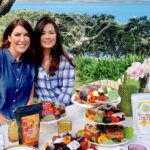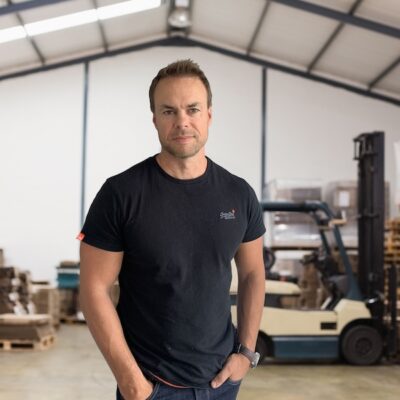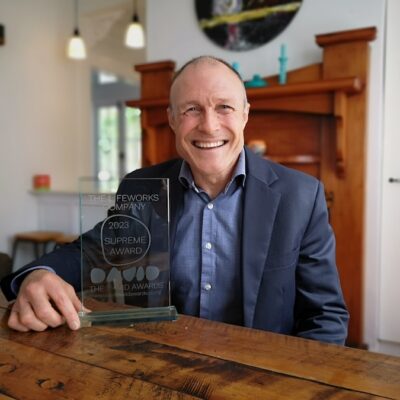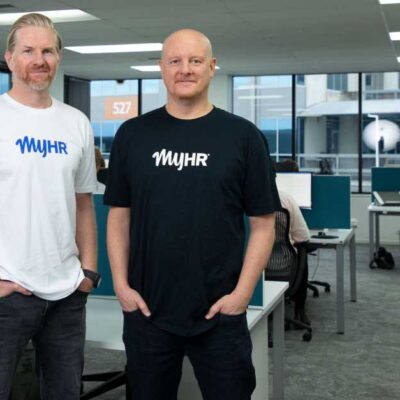Conservationist crowdfunds sustainable sunscreen
A wahine Maori conservationist who launched a social enterprise to prevent chemicals in sunscreen and plastic from damaging the marine environment is set for international expansion. Natalie Jones (Nga Wairiki, […]
A wahine Maori conservationist who launched a social enterprise to prevent chemicals in sunscreen and plastic from damaging the marine environment is set for international expansion.
Natalie Jones (Nga Wairiki, Ngati Apa), ecologist and founder of Seasick Sunscreen Co, will begin a local capital raise to boost production for domestic and export growth of the plastic-free sun care product she developed in her Wellington flat in 2019.
As one of New Zealand’s few locally made sunscreen companies, the startup has sold over 5000 product units over the past five years. Annual revenue has also doubled each year.
Jones, who has a master’s degree in indigenous conservation studies, says she created the sunscreen after learning how harmful current sunscreen offerings were to marine life.
She says her customers are asking for more than twice as much product as they are currently producing, and the company is seeking funding to scale up and outsource production and enter new export markets.
“The global sun care product market is growing at four percent per annum and is forecast to reach US$14.7 billion by 2028.[1]
“Sadly, the most common active ingredients of most sunscreens on the market – oxybenzone, butylparaben, and octinoxate – were identified as environmentally harmful to marine ecosystems and can activate viral infections in the microalgae that corals rely on for nutrition.[2]
“Around 14,000 tonnes of sunscreen containing these chemicals end up in the world’s oceans every year.[3]
“We are seeing more consumers every year seek out products that are effective at preventing sun damage while still minimising their impact on the environment, however, we have been unable to meet demand,” adds Jones.
“The next stage of our development will require additional investment to allow us to outsource and triple production volumes, reach new consumer markets and help to raise global awareness of this issue.
“We believe this opportunity will appeal to the growing segment of environmentally conscious crowdfunders,” she says.
Jones says she believes the product is New Zealand’s only plastic-free sunscreen made with just seven naturally derived ingredients. Currently, her sunscreen efficacy is tested in Australia’s most widely recognised lab.
She says the product has been popular in dive shops where consumer awareness of the impact on marine life is higher.
“Like most entrepreneurs, I started the business based on a problem I wanted to solve for myself. I wanted to create something that was better for the environment, good for my eczema-prone skin, made with fewer ingredients and plastic free.
“I have pale skin and red hair, but I love to be outdoors surfing, hiking and diving so sunscreen was essential for me. I’m also a passionate conservationist, and I just couldn’t find anything in the market that would not only protect my skin, but was better for the planet at the same time.
“I really believed that this product would appeal to eco-warriors like myself, so I was surprised with how quickly parents began purchasing this for their infants and children due to the gentle and natural ingredients. Families and those with eczema and sensitive skin are also my other two key market segments alongside the environmentally conscious,” she says.
“The sunscreen is packaged in aluminium tins which are highly recyclable. In time I would like to be able to establish a refill system which would make us which would make us New Zealand’s first refillable sunscreen.”
Jones says she would also like to have the product certified “Reef Safe” but is hindered by the US$20,000 price tag of the certification. Currently, no New Zealand-made sunscreens have this accreditation.
“At the heart of everything I do is conservation and since day one we’ve donated two percent of all revenue to local ocean conservation. We have a responsibility to safeguard Mother Earth (Papatuanuku) and our oceans for future generations.”
Jones who plans to expand the range into Indonesia soon, hopes to one day support indigenous-led education programmes in each of the countries the products are exported to.
“I truly believe that local indigenous-led solutions are the way to go in combating climate change,” she says.
Jones has also created a mentorship programme to support wahine Maori to grow new skills in business confidence and personal development.
In addition to tackling a number of environmental issues, Jones’ product has gone some way to address a common consumer complaint about sunscreen chemicals.
“While not scientifically tested yet, anecdotal feedback from some of my customers suggests our product doesn’t leave the residue on car paint that other sunscreens that use polyethylene glycol and titanium dioxide do.
“Our product does not contain these ingredients and we are looking into the potential of a more rigorous testing process to determine how effective it is at preventing damage to vehicles,” she says.
Jones says the company is looking to generate $20,000 through online crowdfunding PledgeMe. More details can be found here.
[1] Sun Care Products Market Size. Accessible here.
[2] Lebaron, P., 2022. UV filters and their impact on marine life: State of the science, data gaps, and next steps. Journal of the European Academy of Dermatology and Venereology, 36, pp.22-28.
[3] UN Environment Programme. Accessible here.






